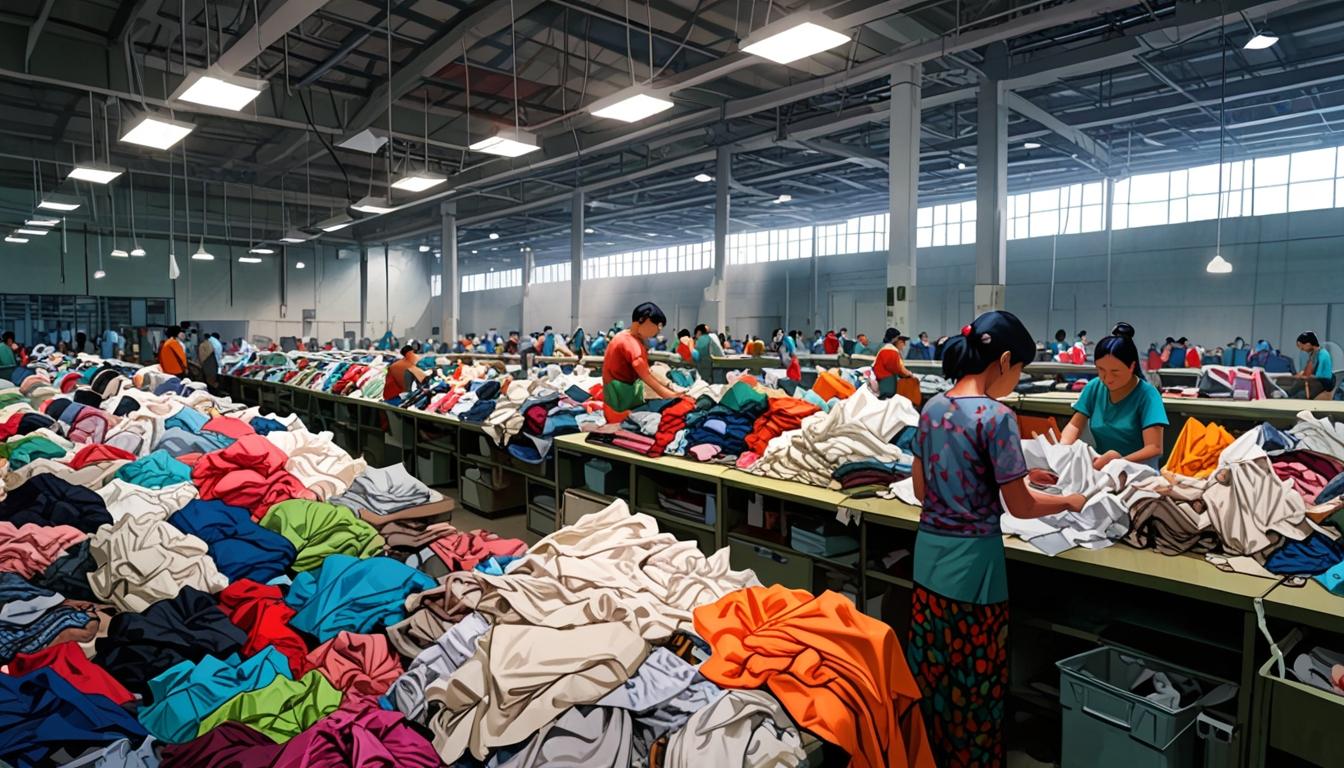Recent data shows a dramatic increase in non-recyclable clothing waste in the UK, highlighting the challenges of the fast fashion industry and its environmental impact.
Recent data highlights a concerning trend in the textile waste industry, as facilities in the UK report a dramatic increase in the volume of clothing that is both non-recyclable and difficult to process. SWD Clothing, located in Bolton, England, noted a staggering figure of 15,500 tonnes (approximately 17,085 tons) of clothing sorted in 2024, translating to approximately 60 million items received from local textile bins and charity shops. This information was shared by the BBC, bringing attention to the current state of fast fashion and its implications on sustainability.
Peter Page, the head of recycling and sustainability at SWD Clothing, explained the challenges faced by the recycling industry, stating, “It’s very difficult because clothing is not designed to be recycled. It’s designed to be bought, to be worn, and then to be thrown away.” His remarks illuminate a pervasive issue within the fast fashion sector, where garments are produced at an alarming rate and often constructed from low-quality synthetic materials that impede recycling efforts.
Fast fashion brands focus on rapidly producing trendy items at affordable prices, allowing consumers to keep pace with constantly shifting styles. This process involves significant compromises, including fair wages for workers, responsible use of natural resources, and the environmental impact of textiles. The water-intensive nature of cotton production, for example, requires around 700 gallons to manufacture a single shirt and an even more staggering 2,000 gallons for a pair of jeans.
In addition to the extensive water usage associated with textile production, synthetic fibers contribute to environmental damage throughout their lifecycle. A report from the International Union for Conservation of Nature revealed that microplastics shed from synthetic textiles during washing account for an alarming 35% of all microplastics found in the world’s oceans. This information was shared by Earth.org and underscores the broader ecological consequences of fast fashion.
To address the growing issue of textile waste, SWD Clothing is exploring innovative solutions to repurpose excess garments. The facility has begun shipping items for alternative uses, such as carpet underlay, noise insulation, and cleaning cloths for the automotive industry. These efforts reflect a shift towards more sustainable practices within the recycling sector.
On a consumer level, individuals are encouraged to educate themselves about the clothing they purchase. For instance, garments labeled as “recycled polyester” often contain plastic bottles rather than being derived from previously recycled polyester clothing. Additionally, opting for natural fibers such as silk, cotton, linen, and hemp may lead to increased longevity of garments and improved recyclability.
The surge in fast fashion and its impact on textile waste presents a complex challenge, one that implicates various stakeholders from consumers to manufacturers and waste management facilities. The ongoing efforts to navigate these issues signal a concerted attempt to reclaim the path toward more sustainable fashion practices.
Source: Noah Wire Services




